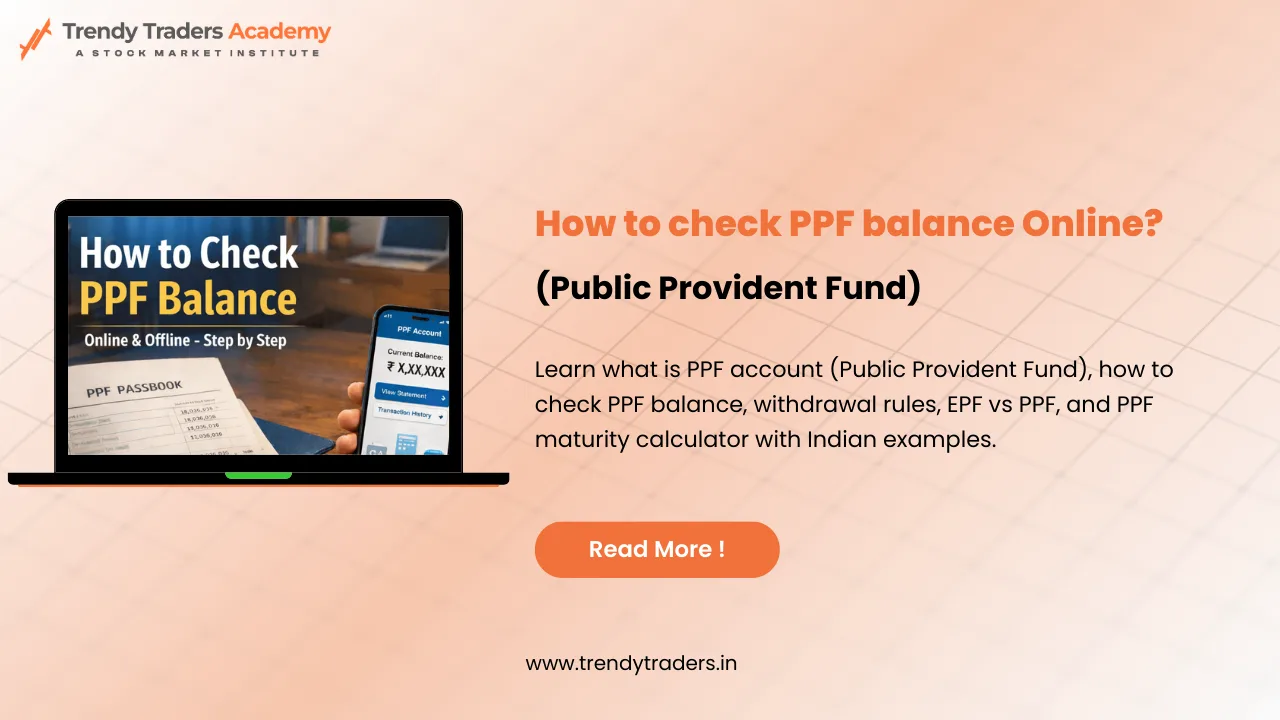
Is Forex Trading Legal in India? | Forex Trading Rules Explained
The forex market operates as the world’s largest financial trading venue where people conduct trillion-dollar currency trades daily. Investors could achieve profitable results through trading foreign currencies because of their changing market values. The Indian regulatory authorities enforce rigorous controls over forex trading operations. Questions like is forex trading is legal in India and concerns about the punishment for forex trading in India highlight the importance of understanding the country’s rules and laws. This guide will address the legalities, explain the scope of forex trading in India, discuss trading hours, taxation, and the risks and penalties involved.
Understanding Forex Trading in India
Forex trading in India refers to buying and selling currency pairs to profit from the difference in exchange rates. The process combines two monetary units through the simultaneous purchase and sale of either currency. The Indian financial market regulating body combines the Reserve Bank of India (RBI) alongside the Securities and Exchange Board of India (SEBI) which manage all forex operations under the Foreign Exchange Management Act (FEMA) 1999.
The main purpose of Indian forex regulations is to defend domestic economic strength while stopping prohibited financial actions. India allows foreign exchange trading with precise limitations that control the activity.
- Traders may conduct transactions using exchange pairs which have the Indian Rupee (INR) as one of the currencies: USD/INR and EUR/INR, along with GBP/INR and JPY/INR.
- Exporting of international currencies between EUR/USD, GBP/USD, and USD/JPY takes place at recognised markets NSE, BSE and MSEI.
- The use of unregulated trading platforms alongside forbidden currency pairs in trading is unlawful based on Indian regulatory standards.
Through its implementation of these guidelines, India maintains forex trading according to both local financial principles and global standards.
Is Forex Trading Legal in India?
Yes, forex trading in India is legal, but only within the scope of RBI and SEBI regulations. Authorised brokers, along with exchanges, act as the sole means through which Indian residents can participate in forex trading activities. Any currency exchange dealing outside authorised pairs that contain the Indian Rupee or through non-regulated international platforms will be considered unlawful.
Authorised forex trading in India must take place on recognised platforms like:
NSE (National Stock Exchange)
BSE (Bombay Stock Exchange)
MSEI (Metropolitan Stock Exchange of India)
Under SEBI supervision, all forex trading exchanges exist and traders must conduct business through brokers authorised by SEBI to maintain Indian law compliance.
The violation of FEMA regulations results from trading forex using international brokers and non-INR-based currency pairs outside the authorised guidelines. People who conduct unauthorised forex trading activities expose themselves to penalties and enforceable legal repercussions.
Punishment for Forex Trading in India
The FEMA Act, 1999 imposes strong sanctions for people who partake in unlawful forex trading. The punishment for forex trading in India includes both financial penalties and potential legal action. Here are the potential repercussions:
Bookmakers convicted of such crimes must pay fines that equal three times the illegal transaction amount.
Authorities maintain the power to confiscate funds along with properties that stem from unauthorised forex trading operations.
Extreme violations will be subject to imprisonment, yet this penalty applies mainly to cases involving large amounts of financial fraud with multiple illegal activities.
Financial market involvement remains unavailable to traders who conduct illicit transactions since they may face blacklisting.
Operating all forex trades on authorised platforms and using permitted pairs ensures traders will avoid the penalties in question.
Forex Trading Time in India
The forex trading time in India varies depending on whether you’re trading on Indian exchanges or through international markets. Here’s a breakdown:
The currency derivatives market exists on Indian exchanges (NSE, BSE, MSEI), which operate within the time span of 9:00 AM to 5:00 PM IST. The trading sessions exist during the same hours as the regular stock market sessions.
The international foreign exchange market remains operational throughout all 24 hours through various essential trading sessions.
The session in India spans from 5:30 in the morning until 2:30 in the afternoon according to Indian Standard Time.
European Session: 1:30 PM to 10:30 PM IST.
The trading period for American Forex extends from late evening till early morning Indian Standard Time.
To engage in international forex trading, Indian traders must learn how to work during global trading times. The use of international trading platforms that fail to comply with Indian regulatory standards remains forbidden for trading purposes.
Tax on Forex Trading in India
Income from forex trading in India is subject to taxation under Indian income tax laws. Here’s a detailed breakdown:
Speculative Income:
The profits earned through intraday forex trading operations are categorised as speculative income.
Tax calculators use the trader’s income tax slab rate to determine rates.
Non-Speculative Income:
The profits earned through forex trading operations for more than one day are classified as business income by tax definition.
An individual must follow their personal tax slab rate when paying tax.
Dedication of Expenses:
Taxable forex trading income a results of deducting brokerage fees along with transaction costs, and other relevant expenses from the trades.
GST on Forex Services:
These charges and brokerages of forex trading services might also be considered as goods and services that are subject to the GST.
However, for anyone involved in the forex trading business, it is advisable to seek the assistance of a tax consultant on the legal requirements on taxation and on how to maximise on his or her tax strategies.
Risks in Forex Trading in India
The global exchange market is a prospective and highly lucrative area for investments, yet, it also poses considerable threats, including to the new entrants. The important risks that are associated with this project include:
Liquidity Risk: Currency markets are very liquid and sudden changes in price may result in a number of losses on traded currencies.
Leverage Risk: Like most of the forex trading, it involves using of leverage and as we know leverage increases both profit and loss experiences much.
Legal Risks: Conducting business on unauthorised boards or in unauthorised currency pairs may be unlawful.
Lack of skills and knowledge: The beginner traders do not possess adequate skills and knowledge on how to perform proficiently in the forex markets.
Liquidity risk: sometimes, it can be an issue to obtain the required volume of a particular asset at the intended price.
Steps to Trade Forex Legally in India
Follow these steps to participate in forex trading in India legally:
Select a Registered SEBI Broker: It is mandatory to choose a broker who has registered with the Securities and Exchange Board of India or SEBI for overseeing the broking business in India.
Usable Pairs for Trading: Trading is allowed only in INR pairs such as USD/INR, EUR/INR, GBP/INR, JPY/INR or cross rates USD/EUR, USD/GBP, USD/JPY.
Open a Trading Account: Open commission house trading account in the selected brokerage house.
Be Keen on Trading Hours: Trading hours of the exchanges should strictly follow the Indian legal trading hours.
Troll Regulations: Track present regulatory policies of both RBI and SEBI to understand if the trades being made conform to the existing regulations.
Future of Forex Trading in India
The forex trading in India landscape is gradually evolving, with increasing awareness and technology adoption. The advancement in technology has allowed the increase in access and the enhancement of the image of forex markets among different traders and so more people are investing legally. The measures such as the expansion of many more currency pairs besides increasing the frequency of regulations will enhance the participation level while maintaining the stability of the economies.
Conclusion
So, is forex trading legal in India? Yes, but they should be done according to the guidelines set by RBI and SEBI in the Indian capital market. The Indian citizens can otherwise engage in the trading of the currency pairs that includes the INR and all the exchanges and transactions must be conducted by the registered and accredited brokers or exchange platforms. It means that it is relevant for one to understand the rules, taxes, risks, and penalties so as to be safe and tend with the requirements of trading. For aspiring traders, forex trading in India offers immense potential when approached with the right knowledge and strategy.
Also Read : Best SEBI Registered Brokers in 2025
FAQ'S
Is Forex Trading Legal in India?
Yes, but with restrictions.
Forex trading in India is legal only if done through authorized dealers and Indian exchanges (like NSE, BSE) using currency pairs approved by the Reserve Bank of India (RBI) and SEBI.
Only INR-based pairs like USD/INR, EUR/INR, GBP/INR, and JPY/INR are allowed on Indian exchanges.
Trading forex via international brokers or platforms offering non-INR pairs is illegal under the Foreign Exchange Management Act (FEMA).
Forex Trading in India ?
Forex trading in India is regulated by the RBI and SEBI. Indian residents can only trade forex:
- Through Indian brokers registered with SEBI.
- In currency derivative segments on recognized Indian exchanges.
- In INR-based pairs only.
International forex brokers offering platforms for global pairs like EUR/USD or GBP/JPY are not permitted for Indian retail investors.
Forex Trading Time in India ?
Forex trading time in India depends on the market and platform:
- Indian Exchanges (like NSE/BSE):
9:00 AM to 5:00 PM (IST), Monday to Friday. - Global Forex Market Hours in IST:
- Sydney Session: 3:30 AM – 12:30 PM
- Tokyo Session: 5:30 AM – 2:30 PM
- London Session: 12:30 PM – 9:30 PM
- Sydney Session: 3:30 AM – 12:30 PM
New York Session: 6:30 PM – 3:30 AM (next day)
(Note: Trading in global markets via unauthorized means is illegal for Indian citizens.)
Punishment for Forex Trading in India ?
If an Indian resident engages in unauthorized forex trading (like using offshore brokers), it is a violation of FEMA. Penalties include:
- Monetary penalty up to ₹2 lakhs per transaction, or more.
- Further penalty of ₹5,000 per day for continuing contravention.
In serious cases, RBI can initiate legal action, including prosecution.
Tax on Forex Trading in India ?
Forex trading income is taxable under the Income Tax Act:
- Speculative income (Intraday forex):
- Taxed under business income at the individual’s applicable slab rate.
- Taxed under business income at the individual’s applicable slab rate.
- Non-speculative income (delivery-based or derivatives):
- Also taxed as business income.
- If turnover exceeds limits, tax audit may apply under section 44AB.
- GST, advance tax, and TDS provisions may apply depending on income volume.
- Also taxed as business income.
Professional traders often file under Presumptive Taxation (44AD) or regular ITR-3 based on scale.










